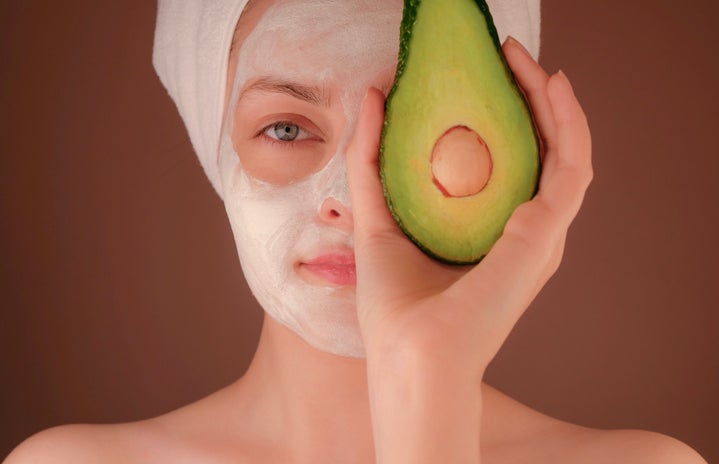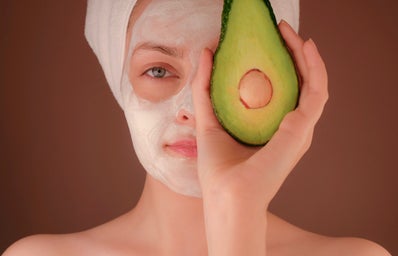If you’re a teenager or have passed those years, you have probably had at least one acne-like breakout before. In simple terms, acne is caused when oil gets trapped in our skin’s pores because of dead skin cells on the surface of our skin. The area becomes inflamed and leads to a not so lovely pimple. The production of acne is usually much more complex than that. Most cases of acne stem from the completely normal hormonal fluctuations in our body. Certain foods can trigger our hormones to produce more oil in our skin. Acne is completely normal, and it is very common. But despite this, it can make us uncomfortable and lower the self-esteem of some.
When many people think of healing acne, they think about what products to apply topically. This does not prevent acne. This only attempts to dry up the acne that is there, but as soon as it is gone, a new break out happens, and it is an ongoing cycle that seems to never end. Acne needs to be cured from inside the body. This is why diet plays a significant role in skin health. As a girl who has struggled with acne for YEARS and tried countless topical products that didn’t end up working, I have learned a lot about what works to prevent acne. Trying to heal your acne from within is one of the best ways to reduce acne and improve skin health.
Foods to Avoid
You’ve probably heard it before, but I have to mention it again, AVOID all unhealthy foods. Processed foods, boxed juice, soda, refined carbs, fast-food, sugar, all of the above are harming your skin and overall body. We already know this; however, we still continue to eat all of the above and this bad habit needs to be stopped. Think about what you’re putting into your body. Healthy food equals healthy skin and unhealthy food equals unhealthy skin.
Another food to avoid is dairy. Dairy is a very common food intolerance for many. Dairy can trigger the production of excess sebum. Sebum is the natural oil found in our skin. Sebum is good, but too much leads to clogged pores and skin issues.
If you’re someone who likes to work out and build muscle, you’ve probably been told to incorporate whey protein into your diet. It turns out, high amounts of whey protein can lead to acne. So, if you think this may be a contributing factor to your acne, you may want to limit the amount of whey protein you consume.
candy

Incorporate whole foods and a lot of fruits and vegetables
Healthy skin starts with a healthy diet. Our skin needs essential vitamins and nutrients for it to flourish. Many skin problems can be solved by eating right. If you’re eating a diet that lacks vitamins and minerals, where will your skin get its fuel from? Incorporating lots of fruits and vegetables, and whole foods, or what I like to call real foods, will be beneficial to your skin. One major tip is to put down the white bread, white rice and white pasta, which are made of refined carbs, and substitute with the whole grain option of bread, rice and pasta. Another tip is to focus on incorporating the essential vitamins that our skin needs. Vitamin A can be found in carrots, broccoli as well as red and orange bell peppers. Vitamin D can be found in spinach, kale and salmon. Keep in mind, vegetables are not specific to only one vitamin. One type of vegetable has many vitamins. Once you’re eating real foods as opposed to fast-food and processed food, your body should be getting the essential nutrients it needs.

Incorporate anti-inflammatories into your diet
One cause of acne is inflammation in our body. To combat this incorporate anti-inflammatories into your daily routine. Ginger, turmeric, and garlic are high in anti-inflammatory properties. All three ingredients can be added to many recipes. Garlic is the easiest to add to recipes but adding ginger and turmeric to recipes may be a little troublesome to some people. You can simply boil ginger and turmeric in water and drink them like tea. Turmeric can even be applied topically like a face mask. Fun fact: In Indian culture, turmeric is applied to a bride’s skin before her wedding so that she can have nice glowy skin on her wedding day.

Take a probiotic supplement
Probiotics are healthy bacteria that improve digestion by balancing our body’s “good” and “bad” bacteria in our digestive system. The health of our digestive system is interconnected with the health of our immune system, skin, and overall body. Probiotics can help to reduce acne, eczema, rosacea and many other skin problems. Probiotics are found in naturally fermented foods such as yogurt, pickles, kombucha, and sourdough bread. With a busy lifestyle, it may be easier to take a probiotic supplement. Probiotic supplements can be found in most grocery stores in the vitamin section. They don’t require a prescription and are safe for the body in moderation. If you are extra worried about how it will affect you, it doesn’t hurt to consult a doctor first.
Drink spearmint tea for hormonal acne
Spearmint is a naturally occurring plant in nature. Spearmint leaf tea has been proven to reduce hormonal acne in females. It works by ridding the body of excess androgens. Androgens are male hormones, but a small amount is needed in the female body as well. However, in excess, they can lead to an increased oil production in our skin which leads to clogged pores, inflammation, and acne. Spearmint tea is a harmless, cheap and natural remedy to prevent hormonal acne. Before you take any medications that deal with your hormones, try drinking spearmint tea twice daily. It is definitely worth a try!

As you can see, you are what you eat. If you want your skin to be healthy you have to eat healthy. Food has a significant impact on our bodies. Nutrition is important to the health of all of our body’s organs. We often forget that our skin is our body’s largest organ. Not only that, it is also the only visible organ. We must take care of it! Having acne doesn’t always mean your skin is unhealthy. But there are certain things you can do to make your skin healthy and simultaneously prevent acne. If you have acne, trying to cure it naturally may be the solution. Acne or not, nutrition is important to healthy skin in general and a healthy body overall.



